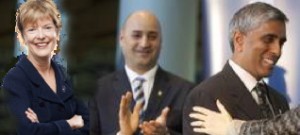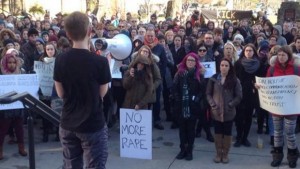The Board of Governors’ rejection this week of the Faculty Association’s request for accountability in President Gupta’s resignation marks the low point of shared or faculty governance at the University of British Columbia. It’s a shame that UBC sunk to rock bottom as it intended to rise to the occasion of its 100th birthday.
Although among the 21 members of BoG there are 8 elected by faculty, staff and students, which gives a facade of shared governance, the reality driven home in the non-disclosure scandal is that governance at UBC is dominated by developers and investment bankers. Silenced or muzzled, the elected faculty, staff and students have been irrelevant if not useless in protecting the best interests and being honest with the members of the University.
Equally futile in introducing even a modicum of accountability or insight into the non-disclosure scandal is the UBC Senate. At the moment when we needed shared or faculty governance most, when it really counted, the UBC Senate accepted its Nominating Committees’ recommendation to stick with status quo practice in the search for a successor President “instead of attempting to make significant changes at this time.”
The public requests for accountability from faculty and librarians (FAUBC), from staff (CUPE) from graduate students (GSS) and undergraduate students (AMS), are symbolic of appeals for shared governance. And each appeal or request has been rejected out of hand by the University. In the words of the BoG, “personal privacy” trumps accountability and access to information of a public body. Irrelevant is its duty under the University Act to protect the best interests of the University and be honest with the members of UBC.
In 2004, the Federal Information Commissioner expressed concerns that civil servants, lawyers and managers of public bodies in Canada were managing “to find ingenious ways to wiggle and squirm to avoid the full operation of the law.”
Two recent books, The Rise and Decline of Faculty Governance and The Fall of the Faculty, document this descent to the rock bottom of shared or faculty governance. UBC is not alone at the bottom and there were never expectations that it would be any different.
But the explicit rejection by the BoG this week of requests for shared governance in accounting for the resignation of a President paves that rock bottom for a long stay.
There is much more to say, as shared or faculty governance is by no means limited to BoG or Senate at UBC. At the lower levels of Faculties, Schools and Departments, there is an atrophy of shared or faculty governance. Budgets, for example, have been made sacred and secret at UBC, with Deans and Associate Deans (appointed at whim) making the budgets and centralizing more and more budget decisions while reporting less and less.
In “A Love Affair with Secrecy,” we are reminded that the “Access to Information Act was supposed to get government documents into the hands of Canadians. Instead, it has created a state in which there are often no documents to get.”

 Follow
Follow
